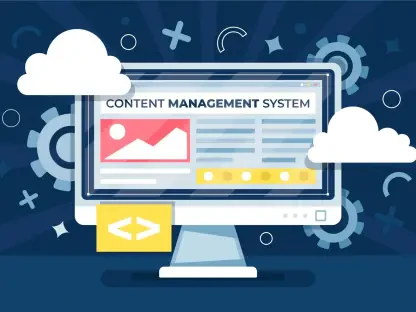Setting the Stage for Digital Success
In today’s fast-paced digital economy, where countless strategies compete for attention, affiliate email marketing stands out as an exceptional method for driving revenue with minimal overhead. Imagine a scenario where a single well-crafted email campaign, sent to a targeted list of subscribers, generates thousands of dollars in commissions for an affiliate without them ever creating a product. This powerful tactic, leveraged by bloggers, influencers, and niche experts, capitalizes on the personal and direct nature of email to turn subscribers into buyers. As businesses and individuals alike seek cost-effective ways to maximize earnings, understanding the mechanics of this strategy becomes essential for staying competitive in an ever-evolving marketplace.
The current state of the digital marketing industry underscores the significance of affiliate email marketing as a cornerstone of performance-based revenue models. With email remaining one of the most trusted channels for communication, boasting higher engagement rates than many social platforms, affiliates have a unique opportunity to connect with audiences on a personal level. This report explores how this approach not only drives conversions but also builds lasting relationships, offering insights into strategies, challenges, and future trends that shape its impact on revenue generation.
Understanding Affiliate Email Marketing: A Revenue-Driving Strategy
Affiliate email marketing stands as a pivotal tool in the digital marketing arsenal, enabling affiliates to earn substantial income by promoting products or services they don’t own through targeted email campaigns. This method allows individuals and entities, such as bloggers and influencers, to partner with merchants and leverage their audience to generate commissions on sales or leads. Unlike traditional advertising, the focus here is on performance, where earnings are directly tied to successful conversions, making it a low-risk, high-reward strategy for many.
Within the broader digital landscape, this approach connects key players—affiliates who promote, merchants who provide products, and platforms that facilitate partnerships. Email, as a channel, offers a distinct advantage due to its direct and personal nature, allowing for tailored messaging that resonates with subscribers. Its ability to bypass the noise of social media feeds positions it as a reliable medium for driving action, especially when integrated with compelling content that adds value to the recipient’s experience.
The significance of this strategy lies in its scalability and accessibility, catering to both small-scale affiliates and large enterprises. By utilizing existing email lists, affiliates can test and refine campaigns with minimal investment, while merchants benefit from expanded reach without upfront advertising costs. This symbiotic relationship continues to fuel growth in sectors ranging from e-commerce to financial services, highlighting email’s enduring role in digital revenue generation.
Core Strategies for Maximizing Conversions and Engagement
Personalization and Audience Segmentation
One of the most effective ways to elevate affiliate email marketing campaigns is through personalization, ensuring that content aligns closely with the interests and needs of subscribers. Studies reveal that personalized subject lines can increase open rates by as much as 26%, while tailored email bodies drive higher click-through rates. This approach transforms generic promotions into meaningful interactions, making recipients feel understood and valued, which is critical for fostering engagement.
Segmentation further enhances this impact by dividing email lists into specific groups based on demographics, behavior, or preferences. Techniques such as grouping subscribers by past purchases or content interactions allow affiliates to send highly relevant messages, whether it’s a product review, a practical tip, or a compelling story. Delivering value through such targeted content builds trust, encouraging subscribers to view emails as resources rather than mere sales pitches, thus nurturing long-term loyalty.
Beyond immediate conversions, storytelling plays a vital role in maintaining audience connection over time. By weaving narratives that highlight personal experiences or the benefits of a product, affiliates can create emotional resonance, turning one-time clicks into sustained engagement. This strategic focus on relevance and value ensures that campaigns remain effective, even as subscriber expectations continue to evolve in a crowded digital space.
Leveraging Data and Analytics for Optimization
Data-driven decision-making forms the backbone of successful affiliate email marketing, with analytics providing actionable insights to refine campaigns. Tools that track metrics like conversion rates, open rates, and customer lifetime value help affiliates understand what resonates with their audience. A/B testing, for instance, allows for experimentation with different subject lines or call-to-action phrases, identifying the most effective combinations to boost performance.
Building a high-quality email list is equally critical, as it directly impacts campaign outcomes. Utilizing verification tools to maintain bounce rates below 2% ensures that messages reach real, engaged recipients rather than cluttering inboxes or landing in spam folders. Prioritizing list quality over sheer numbers not only improves deliverability but also enhances overall campaign efficiency, saving time and resources in the long run.
The continuous loop of testing, analyzing, and optimizing enables affiliates to adapt to changing subscriber behaviors and market trends. By focusing on data, campaigns can be fine-tuned to maximize return on investment, ensuring that each email sent contributes meaningfully to revenue goals. This analytical approach separates high-performing affiliates from those struggling to gain traction in a competitive field.
Overcoming Challenges in Affiliate Email Marketing
Navigating the complexities of affiliate email marketing requires addressing several common hurdles that can hinder success. Inbox saturation remains a significant issue, as subscribers are bombarded with countless messages daily, making it difficult for promotional emails to stand out. Additionally, deliverability problems, such as emails landing in spam folders, can drastically reduce visibility and engagement, undermining even the most well-designed campaigns.
To counter these obstacles, a focus on list quality over quantity proves essential. Rather than amassing large, unengaged subscriber bases, affiliates should prioritize cultivating smaller, more responsive lists through organic sign-ups and relevant content offerings. This targeted approach increases the likelihood of emails being opened and acted upon, directly impacting conversion rates and revenue potential.
Automation also offers a practical solution to maintain consistency and relevance in outreach efforts. By scheduling drip campaigns and follow-ups based on subscriber actions, affiliates can deliver timely messages without overwhelming their audience. Such tools help balance frequency and value, ensuring that communications remain helpful rather than intrusive, thereby preserving trust and overcoming the barriers posed by a crowded digital environment.
Navigating Compliance and Ethical Standards
Adhering to legal and ethical guidelines is a cornerstone of sustainable affiliate email marketing, with regulations like CAN-SPAM in the United States and GDPR in Europe setting strict standards for communication. These laws mandate transparent opt-in processes, easy unsubscribe options, and clear disclosures about affiliate relationships to ensure subscribers are fully informed. Non-compliance can result in severe consequences, including hefty penalties from bodies like the Federal Trade Commission, which actively monitors deceptive practices.
Maintaining credibility goes beyond mere adherence to rules; it involves fostering trust through ethical engagement. Best practices, as outlined by resources like Twilio SendGrid’s recommendations, emphasize the importance of honesty in messaging, such as clearly labeling promotional content and avoiding misleading claims. Such transparency not only protects against legal repercussions but also strengthens subscriber confidence in the affiliate’s recommendations.
The long-term benefits of ethical practices are evident in sustained audience loyalty and brand reputation. Affiliates who prioritize compliance and integrity are better positioned to build lasting relationships, avoiding the pitfalls of short-term gains through questionable tactics. This commitment to doing things right ensures that campaigns remain effective and respected in an industry where trust is a valuable currency.
The Future of Affiliate Email Marketing: Trends and Innovations
Looking ahead, the landscape of affiliate email marketing is poised for transformation through cutting-edge technologies and innovative approaches. AI-driven personalization stands out as a game-changer, enabling the creation of hyper-relevant messages tailored to individual preferences using predictive algorithms. This advancement promises to elevate user retention by delivering content that feels uniquely suited to each recipient, enhancing both engagement and conversion rates.
Dynamic content adaptation further complements these efforts, allowing emails to adjust in real-time based on subscriber interactions or external factors. Platforms like Twilio are at the forefront of this shift, offering tools that integrate seamlessly with existing systems to power sophisticated campaigns. Such innovations ensure that affiliates can stay ahead of the curve, meeting the growing demand for personalized digital experiences in a competitive market.
Another notable trend is the integration of multichannel strategies, combining email with channels like SMS to amplify reach and impact. In e-commerce, for instance, affiliates report a 15-20% uplift in conversions when leveraging timely follow-ups across platforms. This holistic approach, supported by evolving technology, indicates a future where seamless communication across touchpoints becomes the norm, driving higher revenue potential for those who adapt early.
Reflecting on Insights and Next Steps
Looking back on the exploration of affiliate email marketing, it becomes clear that this strategy holds immense potential for revenue generation when executed with precision and care. The balance of personalization, data-driven optimization, and ethical practices proves to be the foundation of campaigns that not only convert but also build lasting subscriber trust. Challenges like deliverability and inbox saturation are acknowledged as significant, yet surmountable through focused efforts on quality and automation.
Moving forward, affiliates are encouraged to invest in emerging tools like AI and multichannel integration to stay competitive in a dynamic digital space. Prioritizing compliance with regulations ensures that campaigns remain credible, while a commitment to delivering value through storytelling and segmentation solidifies audience engagement. These actionable steps offer a clear path to transforming one-time promotions into recurring revenue streams.
As the industry continues to evolve, the importance of adaptability stands out as a key takeaway. Affiliates who embrace innovation, maintain ethical standards, and leverage data for continuous improvement find themselves well-positioned for sustained success. This comprehensive analysis serves as a guide for navigating the complexities of affiliate email marketing, highlighting the strategies and considerations necessary to thrive in an increasingly interconnected digital economy.









